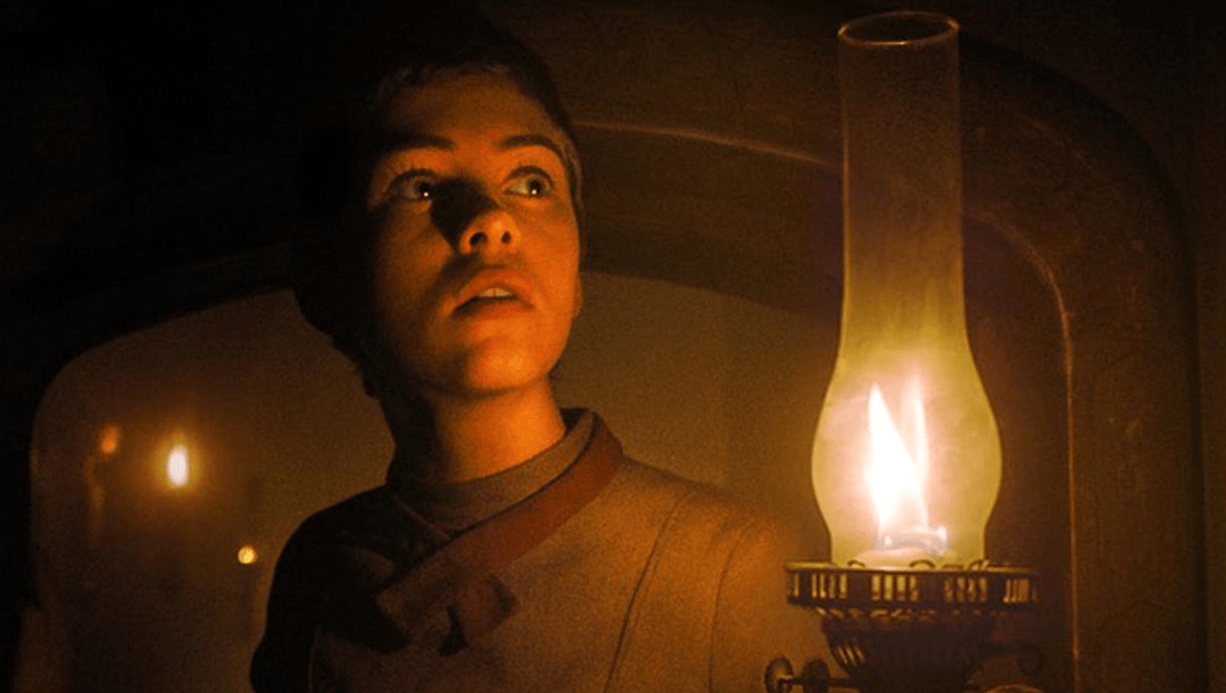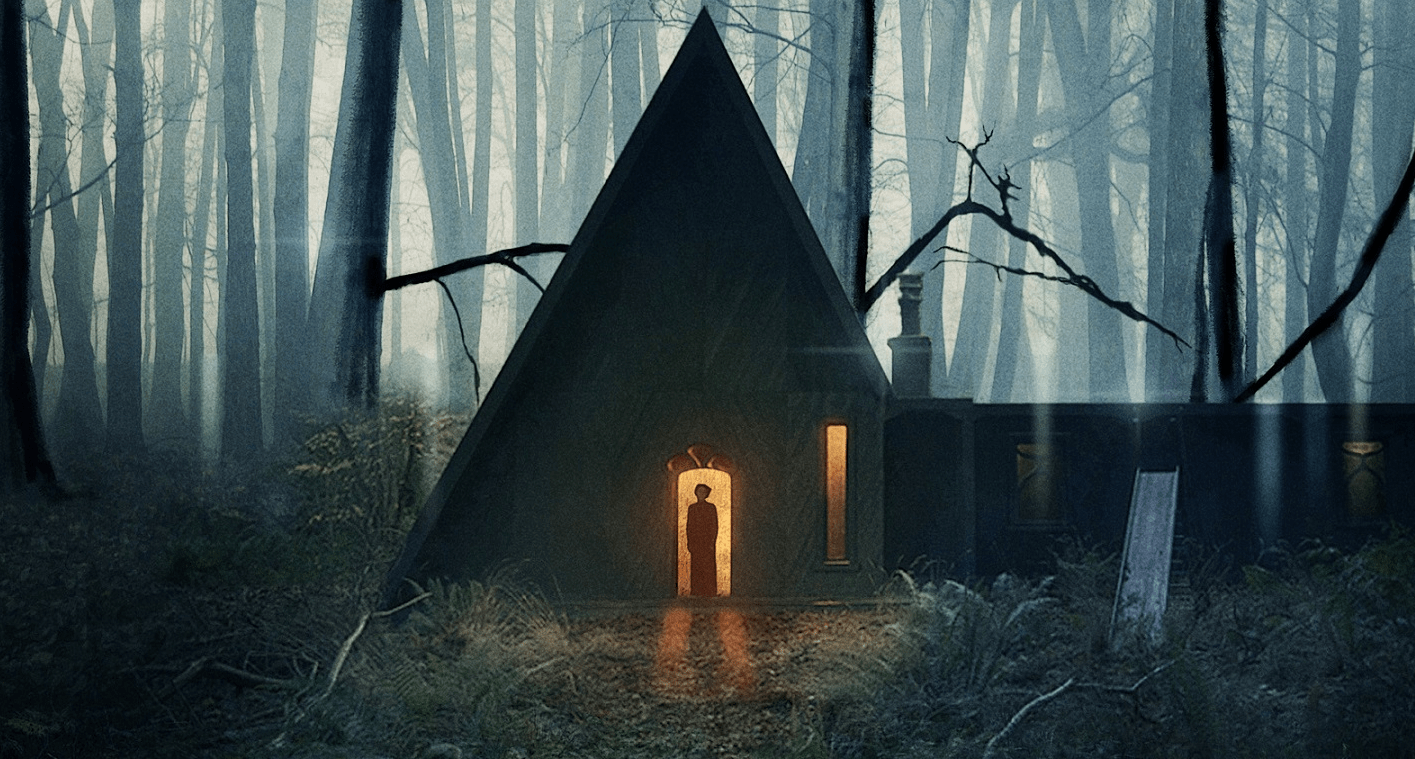New York City, 1976. There’s a party going on in one of the more spacious apartments in Manhattan. Inside, people are drinking, smoking, and having sex, things you’d expect at a party. Outside, on the fire escape, a college professor engages in a discussion with a colleague about the current political state of affairs. Continue reading “Review: ‘Uncle Frank’ is a Feel Good Story That Fails to Make Broader Commentary”
Review: ‘Gretel and Hansel’ is a Beautiful but Ultimately Hollow Mess
The tale of “Hansel and Gretel” is a tale as old as time, or at least as old as medieval times. Gretel and Hansel, directed by Oz Perkins, follows a similar, if much darker, story. Kicked out of their home and desperate for work, Gretel (Sophia Lillis) and her younger brother Hansel (Samuel Leakey) journey into the woods to look for employment. Lost and hungry, they are taken in by a mysterious old woman (Alice Krige), whose house is made of wood, not candy. As she takes care of them, we begin to realize that things are not exactly what they seem.
The central issue of Gretel and Hansel is that it is badly written. It sounds like it was written by an artificial intelligence who was locked in a room and forced to watch Robert Eggers’ The Witch on an endless loop, and was then forced to write a “Hansel and Gretel” adaptation. In short, none of the characters talk like real people. All the dialogue sounds stilted and inhuman, and not because of the somewhat old-timey style (again, see The Witch). Every line of dialogue is so loaded with turns of phrase and metaphor that it sounds utterly removed from anything a human being would say. You can practically hear the screenwriters congratulating themselves for writing cool sounding lines. Simply put, it just sounded unnatural and it robbed the characters of any humanity they might have had. That being said, let there be credit where due: Lillis does a great job with what she is given, delivering a compelling performance. One of the best scenes in the film by far is one in which Gretel comes to a important, plot altering realization. On a related note, that scene is also devoid of dialogue.

The issues with the script go far deeper than the poorly written dialogue. The third act features a twist which barely builds tension and changes absolutely nothing about the stakes or character dynamics featured in the climax of the film. Gretel and Hansel also features side characters with seemingly no purpose, explanation, or motivation other than to force the main characters from point A to point B. The worst offender is The Hunter (Charles Babalola). Perhaps he is part of some arcane “Hansel and Gretel” lore this writer is not familiar with, but nevertheless his inclusion felt akin to the worst and most out of place character cameos in the MCU.
As you’ve probably noticed, this film is called Gretel and Hansel, not “Hansel and Gretel”. True to its name, Gretel takes the spotlight in this story over her brother. This narrative choice does gesture in the direction of feminism, and the rest of the film vaguely shuffles in that direction as well. However, this film’s main antagonist, the witch, follows in a long line of empowered “feminist” villains, whose beliefs are undercut by their position in the narrative. It’s hard to figure out what point the film is making when the witch is waxing poetic about the power of the queen in chess and feminine intuition in one scene and then attempting child murder in the next.

The main thing that Gretel and Hansel has going for it is that it is truly gorgeous. I would like to hear the story of cinematographer Galo Olivares’ own trip into the woods, because he clearly made some demonic pact in order to create visuals this stunning. Additionally, the score was genuinely captivating. It was more electronic than one would expect from a “period” piece, but it really worked with the overall surreal and fantastical tone of the film. In short, Gretel and Hansel very much places style above substance. This is not in and of itself an inherently poor choice. “Style over substance” can work quite well, as long as the style serves the substance and is not just style for style’s sake. The style of Gretel and Hansel, gorgeous lighting and creepy costuming and genuinely excellent sets, is not incongruous with its substance, a dark folk horror adaptation of an already “Grimm” fairytale. However, that substance is so poor and badly done that the style, with nothing to support it, falls flat. The gorgeous cinematography of Gretel and Hansel is not style, but rather an illusion; a conjuring trick. It is a distraction from the fact that you are watching an incredibly badly written film.
One has to wonder what the filmmakers wanted to achieve by making this adaptation. What bearing does “Hansel and Gretel” have on the present day? Films don’t always need to connect to current social issues, but it certainly wouldn’t hurt. The film begins with a voiceover telling us a story with a clear moral. Gretel and Hansel has no morals, other something muddled about “embracing your inner self”, which is further watered down by the contradictory teachings of the witch and Gretel’s own desires. To put it vaguely, for spoilers sake, in the end, the witch gets exactly what she wants from Gretel, and we, the audience, are not given enough from the story to know whether or not this is a happy ending.
Gretel and Hansel is a badly written atmospheric horror heralding the end of so-called “dump month”. It is a feast for the eyes, not the mind. This isn’t always a bad thing, but visuals can only get a film so far when it has nothing else to offer its audience.
1/5 STARS
UW Film Club Podcast #49 – It
“Okay, so let me get this straight. It comes out, from wherever, to record podcasts for, like, a year, and then what? It just goes into hibernation?”
Here on the UW Film Club Podcast, we’ve managed to do something completely unheard of: cover a relevant movie in the same week it’s relevant! This time, we’ve decided to reflect on the 2017 horror flick It, just in time for the release of It: Chapter Two! Although only one of us have seen the sequel so far, we talk about how the two compare, we praise the stellar cast and performances, and ponder over whether its blend of horror and comedy is as sharp and well-balanced as was initially perceived. It’s time to float on the 49th episode of the UW Film Club Podcast! Tune in now!
On this episode: Jim Saunders and Cynthia Li.
You can find us on Facebook at /UWFilmClub, and on Twitter and Instagram @FilmClubUW. Make sure to rate, comment, and subscribe to our podcast on Apple Podcasts, Soundcloud, Spotify, and Google Play, and tune in every Monday for a new episode of the UW Film Club Podcast!


